Positive Health Online
Your Country

Seasonal Ingredients are Better for You, Your Tastebuds, Wallet, and Environment
listed in food, originally published in issue 282 - November 2022
Older readers may remember the days when you could only buy strawberries in the summer and when they ran out you were onto raspberries. Younger readers may not be aware that the reason Brussels sprouts are traditional for Christmas dinner is that they are a winter vegetable and you could never have bought them at the same time as the summer fruits mentioned above in years gone by. In recent decades, innovations in food and transport have created a much more global food market allowing supermarkets to stock exotic foods from all over the world, 365 days a year. While this is fabulous from a consumer choice point of view, we’re missing out on the best produce, spending more money than we need to, and failing to get all the health benefits by overlooking seasonality.
The Japanese call it shun, the precise moment in the year when any food is at its peak in terms of harvest and flavour. Imagine the snap of spring asparagus, the heady scent of summer raspberries or the crunch of freshly frosted cabbage.
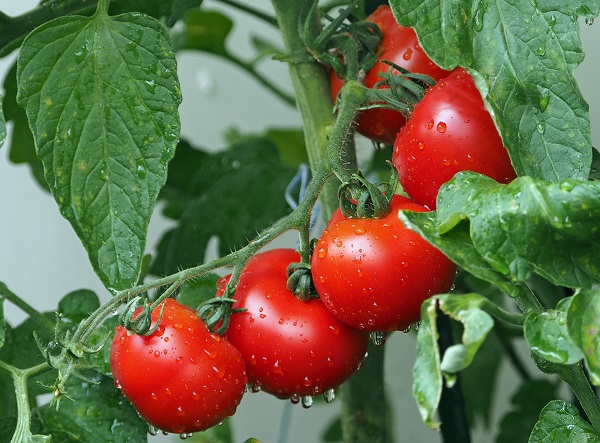
When you choose ingredients that are naturally in season, you will get fresher, sweeter produce that tastes better. The joy of something perfectly ripe is that you have to do very little to it to make it taste amazing. Nothing compares to the taste of tomatoes grown outdoors and ripened in the late August sunshine. Fragrant, sweet, and juicy these tomatoes are a far cry from the red bullets you can buy that are imported in December. They taste of tomato and need nothing more than some salt and pepper to sing on the plate.
Imported produce is generally picked well before it’s ripe to make it easier to transport. This is why avocadoes in the UK will never taste like the ones in Mexico! Imported food is kept refrigerated for long periods of time and doesn’t develop the same levels of nutrients as food that’s allowed to ripen in situ. Seasonal food has a higher nutritional value because it is consumed riper and closer to the time of harvest, while food that’s transported and stored for long periods rapidly loses antioxidants such as vitamin C, diminishing its health benefits.
Seasonal food also supports what your body needs. Summer foods such as tomatoes and stone fruits contain high levels of carotenoids which help protect us against sun damage. When ripened on the vine, tomatoes have plenty of time to develop lots of the red plant chemical lycopene. This has been well documented in safeguarding our skin from damaging UV rays and protecting against skin cancer. Summer vegetables are also naturally lighter and have a higher water content helping us to stay cool and hydrated. Although 80% of your daily water intake usually comes from drinks, the other 20% comes from foods. Cucumbers, lettuce, courgettes, and watercress are all excellent summer vegetable sources of water. By contrast winter veggies tend to be rich in starches. These help to provide the extra energy we need to stay warm in the colder months. What we eat sends signals to our body about the time of year. A warming pumpkin curry in October makes much more sense than a cold leafy salad.
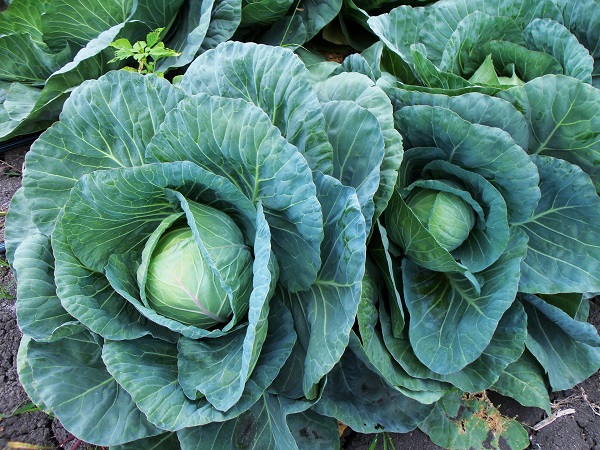
If this isn’t enough, buying food in season can also be kinder to your wallet. When food is at its peak in supply it costs less for farmers and distribution companies to get it to your local supplier, which helps to reduce the cost to you. Local food also avoids any import costs. The more local you buy, the bigger the saving. Farm shops and veg box schemes are a great way to access the best of what’s available and learn about what’s in season throughout the year.
Using produce that is grown or reared in the UK also reduces the number of ‘food miles’ and brings down your carbon footprint. There is less transportation, refrigeration, and fewer hot houses, all of which helps to reduce air pollution. Not only is it environmentally friendly, using seasonal produce supports regional farms and communities, helping to grow the local economy.
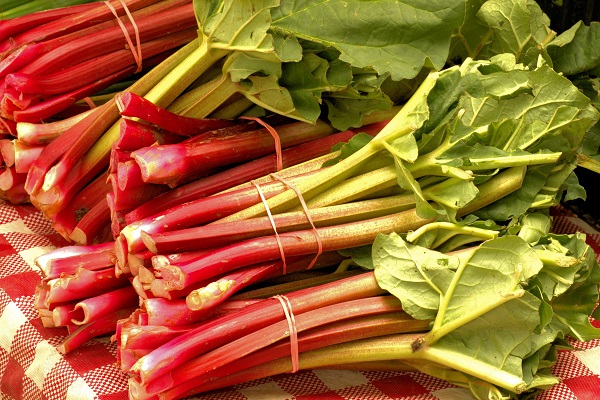
Call me romantic but I’ve rather fallen in love with the ebb and flow of British produce. Getting excited to taste the first forced rhubarb and awaiting the moment I can viably put deep fried Brussel’s sprout back on the menu in the winter. At our restaurant Kindling our self-imposed restriction of buying local has become a catalyst for menu development. It has initiated dish changes, inspired new combinations and driven us to learn more about preserving things so we can use them later in the year. When we started the restaurant, we really wanted to live by seasonality and local produce, and we have found it both liberating and exciting.
At first, seasonal eating can seem restrictive but it doesn’t have to be. Every item you buy produce that’s grown closer to home some air miles are saved and some flavour gained. You’ll soon discover how much better food tastes and how much easier it is to make a delicious meal when the produce you’re using is at its peak. To keep things interesting have a go at preserving or fermenting gluts of summer produce so you can have those flavours later in the year. We love to make berry jams, tomato chutneys, piccalilli, gherkins, and fermented fruits. Then we can use them for a splash of colour and some zing in the colder months.
If you fancy having a go, here are a couple of recipes to get you started and help you preserve the taste of summer:
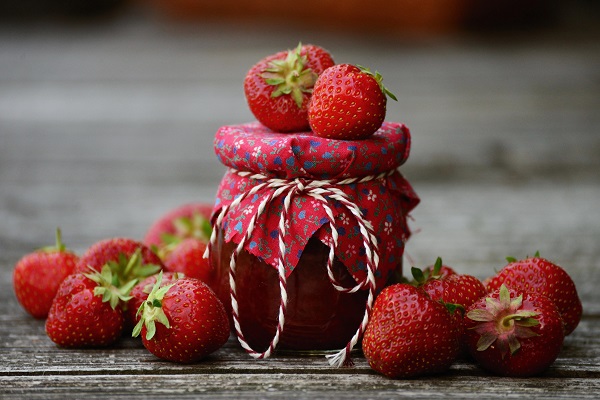
Strawberry Jam
- 1kg of strawberries, green part removed and cut into quarters
- 1kg caster sugar (or you can use preserving sugar and omit the pectin)
- 15g pectin
- 3 tsp citric acid
- Place a small plate in the freezer ready for testing the set of your jam;
- Mix the caster sugar and pectin together so the pectin is well distributed;
- Place the strawberries and sugar pectin mix in a large pan over a low heat and stir regularly until the strawberries have released lots of juice and the sugar is dissolved;
- Stir in the 3 tsp of citric acid then bring the jam mixture up to a simmer, stirring regularly;
- Hard boil the mixture for about five minutes, stirring to ensure it doesn’t catch on the bottom;
- Remove from the heat and test the set of the jam by placing a small amount of your freezer chilled plate. Allow to cool for a couple of minutes. If it is set it will crinkle when gently pushed with a fingertip. If it’s not setting, return the mixture to the heat and boil for a few more minutes and test again. Repeat until the setting point is reached.
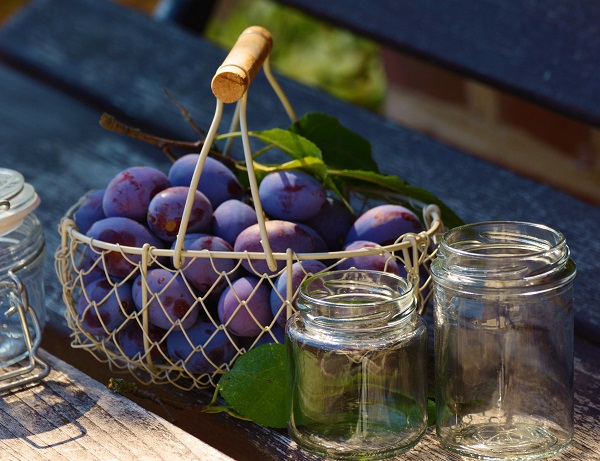
Fermented Plums
Fermenting fruit in brine is a great way to keep it for use later in the year. Fermented plums add a delicious punch as a sliced or diced garnish, or they can be pureed into a zingy sauce.
You’ll need a large jar suitable for fermenting, such as Kilner jar with a rubber clip top lid.
- 1kg plums
- 1L water
- 50g table salt
- Rinse the plums and cut in half, removing the stone;
- Tightly pack your plum halves into your fermentation jar;
- Whisk the water and table salt together ensuring all the salt is well dissolved;
- Pour just enough of the brine over the plums to ensure they are covered;
- A fermentation weight or a zip lock bag filled with water should be placed on top of the plums to weigh them down and force the brine to cover them;
- Seal the jar and allow to ferment at room temperature or slightly warmer. Fermentation will take around five to seven days;
- Burp the jar if necessary to prevent carbon dioxide from building up and creating too much pressure in the jar. At the end of the fermentation period the plums and the brine should taste pleasantly sour and acidic;
- At the end of fermentation, burp the jar and place it in the fridge to halt or dramatically slow fermentation before using. If you intend to keep the jar in the fridge for a long time its good practice to burp the jar occasionally to release any gases that have built up and avoid explosions. Alternatively, you can drain the brine from the fermented plums and freeze them to use later on.
Comments:
-
No Article Comments available